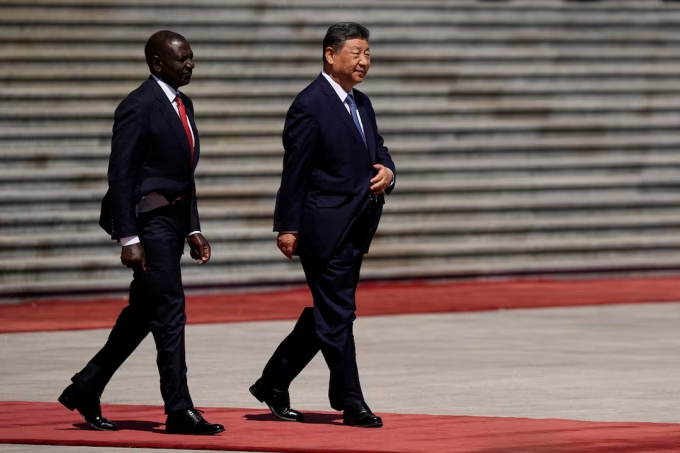Low revenue collection, high interest rates and an unfavourable exchange rate are the reasons the Treasury has no money that has stalled payment of essential expenditures, MPs were told yesterday.
The cash crisis has affected the 47 counties, release of cash for the free primary education and secondary school education funds as well as the National Assembly — with MPs salaries and those of their staff delayed.
The Constituency Development Fund, rural electricity connection and some commissions including the Independent Electoral and Boundaries Commission (IEBC) have also been affected by the cash crunch.
The Kenya Revenue Authority collected Ksh181.2 billion in the first two months of the current financial year, which was below the expected average for the period, the Parliamentary Budget Office (PBO) said.
ALSO SEE: FORMER CENTRAL BANK GOVERNOR PAID KSH40 MILLION
All revenue receipts are below average, said the team of economic and budget experts employed by Parliament to advise MPs, raising doubts as to whether the State will meet tax revenue targets for the year. Domestic borrowing is also below the target because of the high interest rates while the depreciation of the shilling against the dollar weighs heavily on the State’s plans for meeting the revenue target.
The high interest rates for domestic borrowing mean the government is afraid to borrow a lot of money from the market. PBO’s explanation suggested that the combination of low revenue collections, the pressure on the shilling and the inability to borrow locally could explain the cash crunch the government is facing.
“These scenarios coupled with the depreciation of the shilling against major world currencies which stood at an average of Ksh105.56 to the US dollar weighs heavily on the State’s plans to realise its revenue target,” said PBO.
“The distribution of available cash is not balanced with some agencies receiving no resources leading to complaints as is the case with some county governments. State departments for Education, Labour and Security have not been allocated any development funds for the first quarter which may affect implementation of planned projects,” the PBO added.
Treasury Secretary Henry Rotich and Pricipal Secretary Kamau Thugge failed to appear before Parliament to explain the reasons behind the delayed release of funds to ministries, government agencies and constitutional commissions.
Mr Rotich was said to be out of the country while Mr Thugge was in the assembly’s Public Accounts Committee meeting that reviewed Treasury expenditure as questioned by Auditor-General Edward Ouko in the last financial year. Mr Thugge latter went into a closed door meeting with Speaker Justin Muturi skipping invitations to the committee that oversights Treasury.
Members of the committee put the situation down to the large size of the government as a result of the institutions created under the Constitution enacted five years ago.
NEXT READ: REPORT SPOTLIGHTS BEST AND WORST PAID MCAs
















































![Pula Co-Founders and Co-CEOs, Rose Goslinga & Thomas Njeru. Pula provides agricultural insurance and digital products to help smallholder farmers manage climate risks, improve farming practices and increase their incomes. [ Photo / Courtesy ]](https://businesstoday.co.ke/wp-content/uploads/2021/01/Pula-Co-Founders-and-Co-CEOs-Thomas-Njeru-Rose-Goslinga.jpg)




























































Leave a comment